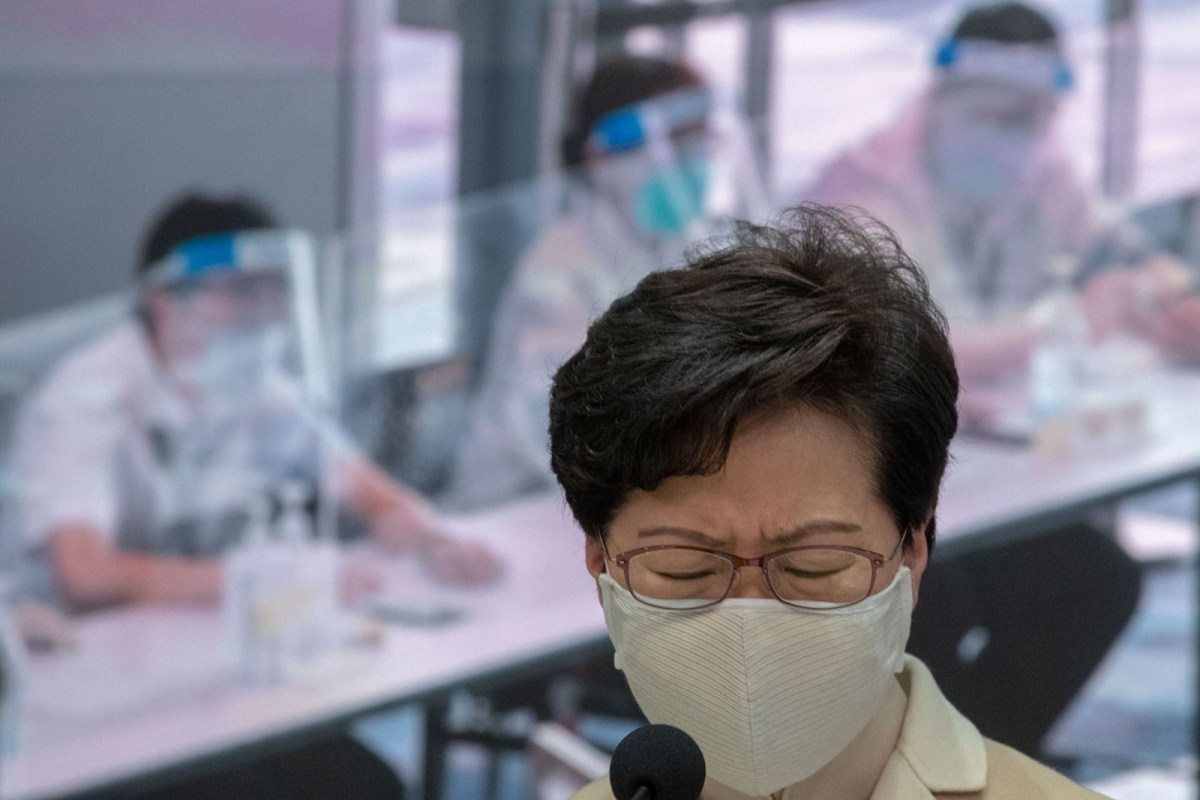[ad_1]
Hong Kong’s vaccination program is under fire on the announcement it will start in March, two months later than originally scheduled, with one health expert saying it may take a year before everyone receives the two required shots.
The Hong Kong government had earlier been urged by pro-business lawmakers to launch a vaccination program in the city as early as possible to fight the coronavirus and restore business confidence.
On December 11, Chief Executive Carrie Lam announced that the government had secured up to 15 million vaccine shots – twice the size of its population – both from Chinese and Western drugmakers.
Lam said the first batch of 1 million shots supplied by China’s Sinovac would arrive in early January, while the Pfizer-BioNTech vaccine would arrive in the first quarter of 2021. However, as Sinovac has not yet released its phase-3 clinical trial statistics, the vaccination program in Hong Kong could only start in March, according to medical experts.
As of Wednesday, Israel has been leading the world in terms of the total number of vaccination doses administered per 100 people in the total population.
The figure was 47.9 in Israel, 27.07 in the United Arab Emirates, 10.79 in the United Kingdom, 8.47 in Bahrain and 7.11 in the United States, according to the Our World in Data (OWID), a scientific online publication.
The statistics count a single dose, and may not equal the total number of people actually vaccinated.
It was reported that the Israeli government had secured enough BioNTech vaccines for its people as it bid for the products at US$28 per dose, a 40% premium over those used in the US and the European Union.
On Monday, a vaccination program that would cover about 80,000 land transport workers in the coming months started in Singapore. On December 30, the city-state became the first country in Asia to approve and use the Pfizer-BioNTech vaccine.
On Monday, the Hong Kong government authorized the BioNTech vaccine for emergency use in Hong Kong in accordance with the Prevention and Control of Disease (Use of Vaccines) Regulation (Cap. 599K).
It said the vaccines were expected to arrive in Hong Kong from Germany in late February, subject to the completion and passing of the relevant tests.
David Hui, a respiratory medicine professor from the Chinese University of Hong Kong and a medical adviser to the government, said the first batch of one million doses of BioNTech vaccines would arrive in Hong Kong next month, followed by the second and third batches of one million doses each. Hui said the remaining 4.5 million doses would arrive in three later shipments.
He said vaccinations could start in March, but it would take one year for all the people in Hong Kong to get both shots.
In a panel in the Legislative Council on Wednesday, Michael Tien Puk-sun, a Roundtable lawmaker, said the government should increase its efforts to speed up the launch of the long-awaited vaccination program, which had begun in many other countries. Tien asked government officials to forecast when the majority of Hong Kong people could receive both jabs of the vaccines.
Jeffrey Lam Kin-fung, a lawmaker representing the Commercial functional constituency and vice-chairman of the Business and Professionals Alliance for Hong Kong, also urged the government to accelerate the vaccination program, which would help suppress the epidemic and support economic recovery.
Sophia Chan, the Secretary for Food and Health, did not provide a timetable, but said people in Hong Kong could schedule their vaccinations online when the vaccines were ready.
While it remains unclear when China’s Sinovac vaccines will arrive in Hong Kong, Lam said Tuesday that she had recently written to Beijing to request the mainland-developed Sinopharm vaccine, which was the first to be allowed by mainland authorities for use by the public last month.
Ivan Hung, the chief of the Infectious Disease Division at the University of Hong Kong, said it was difficult to determine whether the Sinopharm vaccine should be used in Hong Kong as its phase-3 clinical trial report had not been released.
Read: HK secures enough vaccines for double its population
Read: HK wary of Chinese vaccine’s low efficacy rate
[ad_2]
Source link













